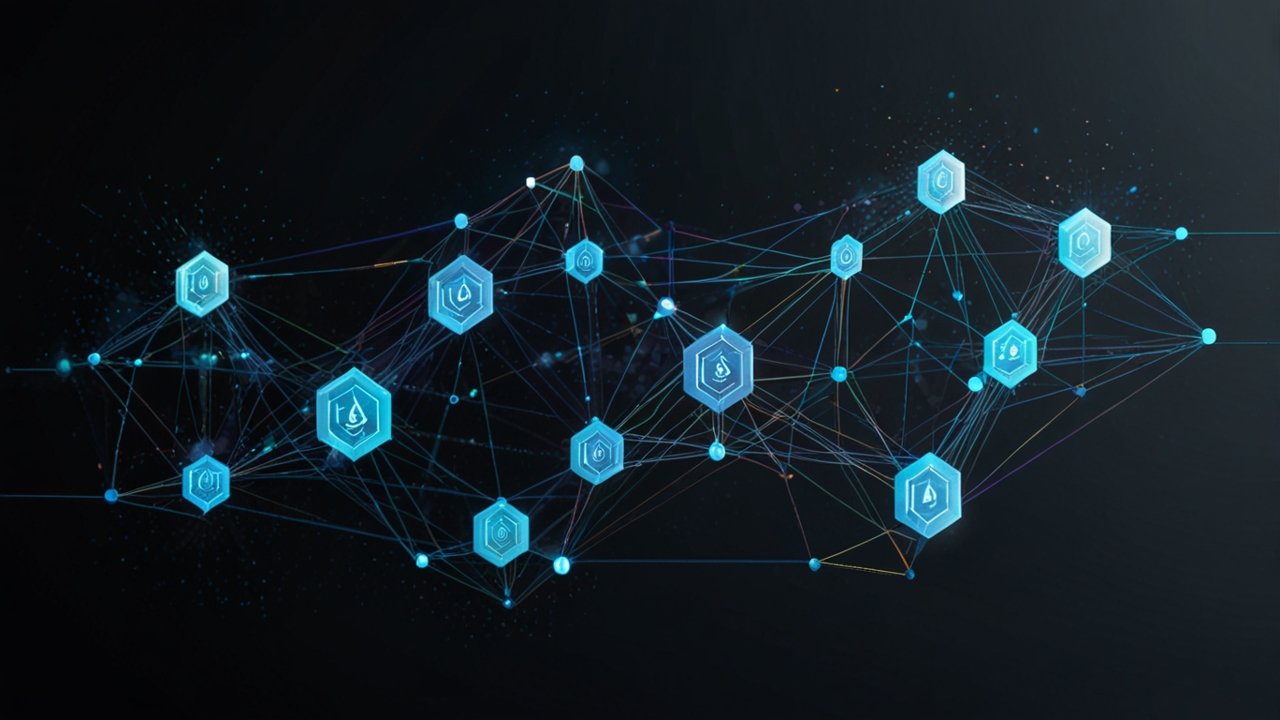Decentralized Social Networks: 6 Ownership Benefits
Welcome to our in‐depth exploration of the innovative landscape of decentralized social networks. In today’s digital era, emerging technologies are rapidly reshaping how we connect online. This article examines the history, current developments, and future trends of these networks with a focus on the unique benefits of user ownership, privacy, and community control.
We begin by understanding the roots and evolution of these platforms, then move on to discuss how distributed platforms enhance the decentralized model. We present real-world examples, a detailed comparison table, and case studies from prominent platforms such as Lens Protocol, Mastodon, and DeSo. We also shed light on the technological methods fueling this revolution while discussing challenges and successes from around the globe.
This article is written in a clear, accessible language for everyone—from tech enthusiasts to beginners. It is designed to help you understand technical terms, explore concrete ownership benefits, and learn how evolving digital rights empower users. For more insights, also check out our category page on Web3 & Crypto.
Introduction to Decentralized Social Networks
Concept and Significance
Decentralized Social Networks represent a revolutionary approach to online communication, where control, privacy, and ownership move away from centralized entities. In these systems, users can secure their identity using
blockchain technology, ensuring that their data remains truly theirs. The spirit behind these networks is to give users the ultimate control over content and data without relying on a single authority. This model addresses issues like privacy breaches and censorship experienced on traditional platforms.
The significance of decentralized networks extends beyond technology—it is a movement driven by the belief that each individual should be at the forefront of digital interaction. By leveraging secure, distributed systems, individuals can interact while preserving the integrity and sovereignty of their information. Have you ever wondered how your digital footprint could be entirely in your hands?
Technological Backbone and Principles
The underlying technological framework employs
blockchain and cryptographic methods to facilitate trustless interactions. Smart contracts automate rules and transactions, creating a verifiable record of every digital interaction. By using innovative distributed solutions such as IPFS for content storage, these networks ensure data resilience and censorship resistance.
Developers have embraced protocols that allow for seamless communication between disparate communities, which further supports the vision. Users can even migrate identities and content between platforms with relative ease. Does this transformative approach to digital interaction spark your curiosity?
For additional insights, check out this insightful analysis on
detailed study on blockchain innovations. Also, explore the tag Web3 Advancements for more related content.
Evolution and History of Decentralized Social Networks
Origins and Early Innovations
Decentralized social platforms emerged from the need to counter the dominance of centralized data gatekeepers. Early projects like Diaspora (2010) and StatusNet, which evolved into Mastodon, pooled ideas that emphasized user autonomy and distributed hosting. These early ventures laid the groundwork for the modern decentralized ecosystem by challenging existing protocols and advocating for privacy and free data flow.
Blockchain technology further accelerated this shift after the introduction of Bitcoin in 2008. The revolution in
digital currency and secure, immutable ledgers unlocked the potential for systems where every user retained control. As these pioneering projects developed, the principles of transparency and community participation became integral to their design. Have you ever considered the impact of early digital experiments on today’s data landscape?
Global Evolution and Adoption Trends
Development in the Americas, Europe, Asia, and Australia has markedly diversified the decentralized ecosystem. In the United States and Canada, blockchain initiatives such as Lens Protocol and DeSo positioned themselves as front-runners. In Europe, the enforcement of GDPR spurred innovation in privacy-first technologies where individual data sovereignty is paramount. Meanwhile, in regions like Japan and South Korea, cultural and regulatory aspects have both challenged and nurtured the growth of decentralized networks.
Key milestones include the exponential growth of the Fediverse from 2016 to 2020 and the rise of NFT-based content monetization from 2021 to 2025. These developments have turned decentralized platforms into vibrant, global communities. What trends do you see emerging in your local digital environment?
For further historical context, take a look at the comprehensive primer on decentralized protocols
here. Also, discover more under the tag Blockchain.
Integration of Distributed Technologies
Distributed platforms integrate advanced components such as IPFS,
distributed ledger systems, and smart contracts to enable decentralized social systems. The synergy of these technologies ensures that every piece of
digital content is stored across multiple nodes, thereby eliminating single points of failure. This integration not only bolsters
data security but also guarantees that no single entity can control or censor the content.
Smart contracts, in particular, provide an immutable and transparent method for enforcing rules and handling transactions. They automate processes like content moderation and monetization, ensuring fairness and responsibility within each network. Could this enhanced security model be the future of online communication?
Benefits and Challenges of Distributed Solutions
The benefits are manifested in several areas—scalability, enhanced privacy, and increased user control are among the primary advantages. However, these networks also face challenges such as high transaction fees and limited user experience compared to mainstream platforms. Integration issues, especially across platforms with varying protocols, require continuous innovation and regulatory clarity.
This balance between advantages and challenges drives continuous research and development. The decentralized model is evolving as developers find creative ways to overcome limitations while preserving the ethos of user empowerment. Are you prepared for the trade-offs inherent in these technologies?
Delve deeper into these challenges by visiting this expert analysis
research paper on decentralized prediction. Also, explore more via the tag Digital Innovations.
User Ownership Systems and Their Applications in Decentralized Social Networks
Mechanisms of User Data Sovereignty
User ownership within these networks revolves around the principle that every individual has absolute control over their data. With technological tools like blockchain-based decentralized identities (DIDs) and private keys, users maintain authority over every digital footprint. The robust system ensures data is encrypted and only accessible to its owner, preventing unauthorized exploitation.
Every time a user posts content or interacts on the network, a verifiable record is stored on a distributed ledger. This innovative approach not only protects privacy but also provides transparency in content monetization. How might this paradigm shift influence your digital lifestyle?
Applications and Monetization Models
The framework enables robust monetization models where content creators can tokenize their social graphs and earn directly from their interactions. Platforms like Lens Protocol and BBS Network illustrate clear benefits: users not only control their data but also generate income through tips, NFTs, and token economies. Such models bypass traditional intermediaries and democratize earning potential.
Blockchain technology facilitates seamless and
trustless transactions, thereby establishing an ecosystem where value creation is directly linked to user participation. The transparency of these processes encourages robust community engagement and fair compensation. Do you believe you could explore new revenue streams with this technology?
Discover more monetization dynamics with additional insights at
market analysis on decentralized networks. Also, learn further aspects under the tag Cryptocurrency.
Real-World Case Studies of Decentralized Social Networks
Case Study: Lens Protocol and Mastodon
Lens Protocol, launched in 2022 on Polygon, empowers users by letting them own their profiles as NFTs. By 2025, it has recorded over 300,000 active profiles, where creators earn directly through tips and
NFT sales. This example shows how decentralization can usher in a new era of content ownership and monetization. Meanwhile, Mastodon, with over 14 million users across Europe, Japan, and other regions, demonstrates how community-driven moderation improves user experience and trust.
These case studies serve as excellent illustrations of how decentralization works practically. They emphasize the importance of migration, data sovereignty, and content autonomy. Have you experienced platforms that prioritize community input?
Case Study: DeSo, BBS Network, and Global Impact
DeSo is another fascinating example. Its blockchain supports decentralized social apps, with over 2 million posts and 100,000 users as of 2024. Users earn via microtransactions and NFTs, reinforcing the model of direct monetization. Additionally, the BBS Network enables NFT monetization of forum posts and shares revenue between creators and moderators, highlighting a structured approach to community governance.
These platforms have significant global footprints, ranging from Israel to Southeast Asia. The resilience of these networks during political and technological challenges underscores their potential to lead the next digital revolution. Could these examples inspire you to join this community?
Comprehensive Comparison of Case Studies
Decentralized Social Network Case Studies
| Platform |
Launch Year |
User Base |
Region |
| Lens Protocol |
2022 |
300,000+ |
US/Global |
| Mastodon |
2010 (Diaspora origins) |
14 Million+ |
Europe, Japan, US |
| DeSo |
2021 |
100,000+ active users |
US |
| BBS Network |
2022 |
N/A |
Israel/Global |
| PeerTube |
2014 |
Thousands of instances |
Europe |
For more comprehensive details, visit this
detailed case study resource. Also, check out further examples under the tag Digital Finance.
Privacy-First Social in Modern Decentralized Social Networks Solutions
Censorship Resistance and Data Protection
Privacy-first design is a cornerstone of modern decentralized social networks. With distributed storage systems like IPFS, content is stored across multiple nodes, making censorship nearly impossible. This ensures not only that data is secure, but also that sensitive information remains under the sole control of its owner.
Systems built on these principles also incorporate encrypted messaging and pseudonymous identities, which further enhance security. The design guarantees that user interactions remain private and censorship-resistant even during times of political turbulence. Do you feel more secure knowing that your data is encrypted and distributed?
User Empowerment Through Privacy-First Solutions
The privacy-first model empowers users by providing full control over digital identities. Decentralized networks allow individuals to manage their identities without being subjected to the policies of centralized authorities. With innovative protocols that prioritize data sovereignty, users are not forced to disclose more information than necessary.
This approach has garnered significant traction, especially in regions with strict data regulations. The robust privacy measures also encourage participation from users who are cautious about traditional
social media environments. What steps can you take to further protect your digital privacy?
Learn more about the evolution of privacy in decentralized environments by referring to studies on these subjects
(detailed guide).
Future Trends: Community Control and Beyond in Decentralized Social Networks
Interoperability, Tokenized Governance, and AI Integration
Future developments in decentralized social networks will likely focus on seamless cross-platform interoperability. Protocols such as ActivityPub and blockchain-based DIDs will enable users to migrate identities effortlessly, ensuring a frictionless experience. This evolution, combined with the integration of AI for content curation and decentralized moderation, will further enhance platform performance.
Tokenized governance models such as DAOs are expected to redefine monetization and decision-making processes. With decentralized voting and transparent token economies, community members will have direct control over platform policies. How do you envision a future where governance is entirely in the hands of the users?
Regulatory Developments and Market Growth Projections
Regulatory adjustments are on the horizon as governments and institutions try to keep pace with digital innovation. The market for these networks is predicted to grow at a CAGR above 20% through 2034, with factors like strict privacy laws and digital rights movements fueling this surge. Areas such as Asia-Pacific and Europe are expected to lead this expansion by leveraging their progressive regulatory frameworks.
While challenges remain due to legal uncertainties and scalability issues, the accelerating growth signals a promising future where community control and decentralization define online interactions. Can you imagine navigating a digital world that embraces both innovation and user empowerment?
For further analysis on market predictions, review this market report
(market report).
Decentralized Social Networks: A Captivating Journey
This section offers a vivid window into a transformative digital realm. It narrates the story of emerging systems that reimagine online engagement with a commitment to user empowerment. The narrative brings forward a tapestry of innovation, inspiring creativity, and inviting participation. Readers are prompted to reflect on how evolving digital models can reshape standard practices and highlight alternative methods of establishing secure, transparent interactions. This exploration invites you to contemplate a future where technological stewardship is democratized, ensuring every digital engagement is individually curated and collectively owned. The narrative also reveals an unexpected insight—a convergence between emerging digital economies and age-old principles of communal trust and shared responsibility. The underlying message is clear: technology can evolve while fully respecting human values. By blending futuristic tools with timeless community principles, this vision calls for a revolutionary transformation beyond typical boundaries. The journey not only sparks ideas but also inspires a proactive stance towards innovation. With every step, the future of online engagement becomes richer, more inclusive, and fundamentally transformative.
This creative insight leaves you with a powerful impression and a renewed commitment to exploring new digital pathways.
FAQ
What are Decentralized Social Networks?
Decentralized Social Networks are platforms that distribute control away from a single central authority. They leverage blockchain and distributed storage technologies to ensure user data sovereignty and enhanced privacy. This model empowers users with more secure and autonomous interactions.
How did decentralized networks evolve over time?
These networks originated as a response to traditional centralized models. Early examples like Diaspora and Mastodon paved the way, with blockchain integrations later reinforcing their development. Global movements and regulatory changes have further fueled their evolution.
What technological innovations support these networks?
Key innovations include blockchain, smart contracts, distributed storage (IPFS), decentralized identities, and tokenized governance through DAOs. Together, they create secure, efficient digital platforms that significantly enhance user control and privacy.
How do these platforms ensure user data sovereignty?
User data sovereignty is maintained through
decentralized identity systems and blockchain-backed records. This ensures that data remains encrypted, verifiable, and exclusively controlled by the user, reducing the risk of unauthorized access or censorship.
What future trends can we expect from these networks?
Future trends include greater interoperability between platforms, enhanced governance models via DAOs, further AI integration for
content management, and continued regulatory evolution to support these advancements. These trends promise to make online interactions even more secure and user-centered.
Conclusion
Decentralized Social Networks are transforming the digital landscape by providing tangible ownership benefits, enhanced privacy, and true community control. The evolution from early experiments to advanced blockchain-based platforms demonstrates a clear shift in how digital communities operate. This vibrant ecosystem empowers individuals by combining innovative technologies with user-centric governance.
Your role in this
digital transformation is crucial. Have you experienced a platform that puts data control squarely in the hands of its users? We encourage you to share your thoughts and join the conversation. For more information, please visit our resources or
Contact us.
Embrace the journey and redefine your digital future!




















Leave a Reply